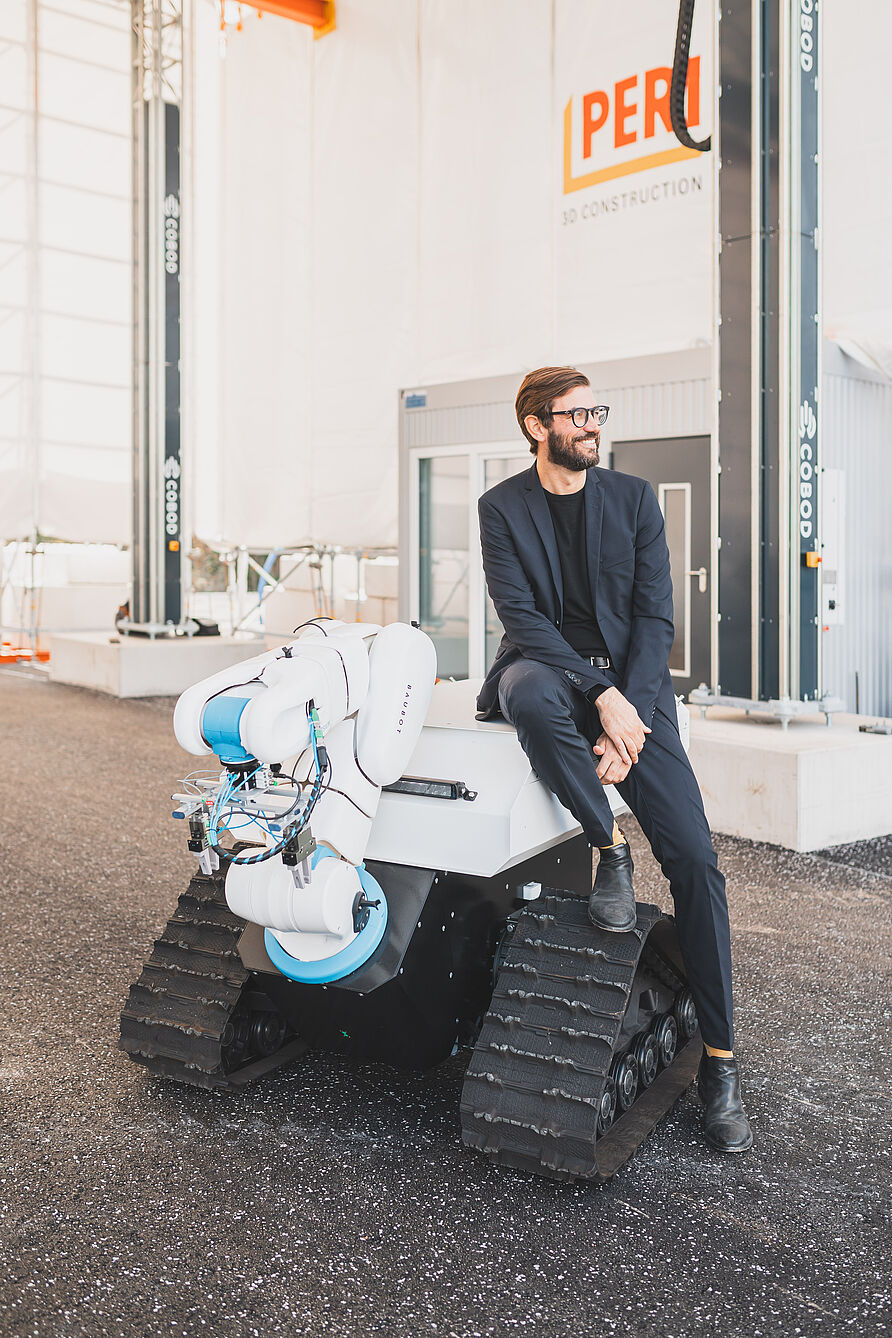Der Computer und die Digitale gesteuerte Maschine haben eine nunmehr 70-jährige Geschichte im Architekturdiskurs. Im Laufe der Zeit wurden die Anwendungsgebiete und Potenziale des Computers in der Architektur ständig neu interpretiert und genutzt, wobei die Naturwissenschaften, die Philosophie und die Kunst diesen Diskurs immer maßgeblich beeinflusst haben. In dem Antrittsvortrag „Code.Craft.Construct. Navigating the Digital Transformation in Architecture and Construction“ gibt Professor Hack einen Überblick über die wegweisenden Strömungen im Diskurs der Digitalen Architektur und verortet die eigene Forschung auf der Landkarte dieser Entwicklungen.
Norman Hack ist Architekt und Forscher auf dem Gebiet des computergestützten architektonischen Entwurfs und der digitalen Fertigung. Er erwarb einen Abschluss in Architektur mit Auszeichnung an der Technischen Universität Wien und einen Master-Abschluss mit Auszeichnung an der Architectural Association in London. Nach Abschluss seines Studiums arbeitete er als programmierender Architekt in der Digital Technologies Group bei Herzog & de Meuron an Projekten in verschiedenen Maßstäben und Planungsstadien, vom konzeptionellen Entwurf bis zur Bauplanung, und vom Möbelmaßstab bis zum Städtebau. Sein Interesse an integrativen digitalen Design- und Fabrikationsprozessen veranlasste ihn zu einer Promotion bei Gramazio Kohler Research, die er am Singapore-ETH Centre (Future Cities Laboratory) begann und am Nationalen Forschungsschwerpunkt für digitale Fabrikation an der ETH in Zürich abschloss. Seine Forschung wurde unter anderem mit dem Swiss Technology Award und der ETH-Medaille für herausragende Doktorarbeiten ausgezeichnet. Von 2018 bis 2021 hatte Norman Hack eine Tenure-Track-Professur für Digitale Baufertigung am Institut für Tragwerksentwurf der Technischen Universität Braunschweig inne. Anfang 2022 wurde er zum ordentlichen Professor für Digitales Bauen am selben Institut ernannt.
English:
As of today, the computer and the digitally controlled machine have a 70-year history in the architectural discourse. Over the years, the fields of application and the potentials of the computer in architecture have been constantly reinterpreted and implemented, whereby the natural sciences, philosophy and art have always had a significant influence on this discourse. In the inaugural lecture "Code.Craft.Construct. Navigating the Digital Transformation in Architecture and Construction", Professor Hack gives an overview of the influential developments in the discourse of digital architecture and locates his own research on the map of these developments.
Norman Hack is an architect and researcher in the domain of computational architectural design and digital fabrication. He holds a degree in architecture with distinction from Vienna University of Technology and a master's degree with distinction from the Architectural Association in London. After completing his studies, he worked as a coding architect in the Digital Technologies Group at Herzog & de Meuron on projects at various scales and planning stages, from conceptual design to construction planning and from furniture scale to urban design. His interest in integrative digital design and fabrication processes led him to pursue a PhD with Gramazio Kohler Research, which he began at the Singapore-ETH Centre (Future Cities Laboratory) and completed at the National Centre of Competence in Research in Digital Fabrication at ETH Zurich. Among other recognitions, his research has been awarded with the Swiss Technology Award and the ETH Medal for outstanding doctoral theses. From 2018 until 2021 Norman held a tenure track professorship for Digital Building Fabrication at the Institute of Structural Design (ITE) at Technische Universität Braunschweig. At the beginning of 2022 he was appointed full professor in Digital Construction at the same institute.


